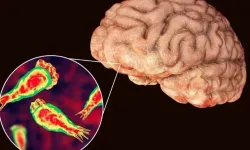Fungal infection
Antibiotics can change our body's bacterial habitat, making people vulnerable to fungal infections, which can appear in the mouth, on the skin or under the nails. If you encounter such a situation, you should consult your doctor before taking any intervention.
Tooth discoloration
Antibiotics can cause tooth discoloration in children before the age of 8. If a pregnant woman takes these medicines, there is also a possibility that the baby may have problems with the enamel. If you experience this rare but possible side effect, you should consult your doctor.
Fever
Fever can be caused by many things other than antibiotic use. However, if you noticed the fever right after you started taking antibiotics, you may have an allergic reaction to the medicine causing the fever. The fever is likely to go away on its own very soon. However, if the fever is very severe, you should see your doctor and change the antibiotic.
Allergic reaction
One of the most dangerous antibiotic reactions is an allergic reaction. In this case, a person may have itchy rashes, swollen eyelids, lips, tongue and even throat, which can lead to anaphylaxis. Sometimes a dose of adrenaline can save a person in such cases. You should tell your doctor about your allergy.
Sun sensitivity
Some antibiotics (tetracycline, fluoroquinolone and sulfone) can make your skin sensitive to ultraviolet rays. If you are exposed to too much sunlight while taking these medicines, you are more likely to get sunburned. When taking antibiotics, it is best to avoid exposure to sunlight from 10 am to 2 pm, use sunscreen and cover the skin with clothes.
Heart problems
It does not happen often, but antibiotics can cause heart problems. It can often cause arrhythmia or low blood pressure.















